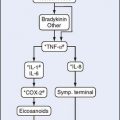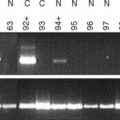22 Conclusion
Since 1984, death rates from colorectal cancer have decreased in both men and women, with an accelerated rate of decline after 1998. This reduction is attributed not only to the introduction of screening but also to newer systemic therapies and improvement in surgical techniques, such as the ones described in this volume.1,2
1 Jemal A, Siegel R, Ward E, et al. Cancer statistics, 2009. CA Cancer J Clin. 2009;59:225-249.
2 Edwards BK, Ward E, Kohler BA, et al. Annual report to the nation on the status of cancer, 1975–2006, featuring colorectal cancer trends and impact of interventions (risk factors, screening, and treatment) to reduce future rates. Cancer. 2010;116:544-573.
Stay updated, free articles. Join our Telegram channel

Full access? Get Clinical Tree







